“I’ve spent 22 years on the Federal Circuit and nine years since dealing with patent cases and I cannot predict [under the current law] in a given case whether eligibility will be found or not found. If I can’t do it, how can bankers, venture capitalists [and] business executives make reliable predictions and sensible decisions?” – Judge Paul Michel
See reports on second and third hearings here:
Gene Patent/Drug Pricing Concerns and Unintended Consequences Dominate Second Senate Hearing on 101
The first of three scheduled hearings in which the Senate IP Subcommittee will hear testimony from a total of 45 witnesses on the subject of patent eligibility law raised many questions. While some read the proposed draft bill released by Congress last month as clearly overturning AMP v. Myriad, for example, Senator Chris Coons (D-DE), Ranking Member of the Senate IP Subcommittee, said today that was not his intention.
In his opening statement, Coons pushed back against an article published on Monday by The Washington Post, which indicated that the proposed draft bill to revise Section 101 would enable the patenting of genes. Coons called the article “significantly misleading” and noted that “our proposal would not change the law to allow a company to patent a gene as it exists in the human body. I believe I speak for the Chairman and myself when I say we do not intend to overrule that holding of the 2013 Myriad decision.” The concerns leading to the Washington Post article arose in recent days, after the American Civil Liberties Union (ACLU) released a statement and held a phone briefing for Congressional staffers claiming that the proposed draft bill would enable the patenting of genes. Sherry Knowles, Principal of Knowles Intellectual Property Strategies and one of the witnesses at today’s hearing, penned a rebuttal of the ACLU’s position that IPWatchdog published on Monday. Knowles spoke in the second panel of today’s hearing and said she hopes the proposed bill would in fact overturn the Myriad decision because “there’s been a dead stop in research in the United States on isolated natural products. The highest public interest is life itself and that has to be the goal of this statute.”
Panel One: The Patent Office and CAFC Experts
Perhaps the strongest point on the untenable nature of current jurisprudence on Section 101 was driven home by Paul Michel, Former Chief Judge of the Court of Appeals for the Federal Circuit. “I’ve spent 22 years on the Federal Circuit and nine years since dealing with patent cases and I cannot predict in a given case whether eligibility will be found or not found,” Judge Michel said. “If I can’t do it, how can bankers, venture capitalists, business executives and all the other players in the system make reliable predictions and sensible decisions?” He and other panel members throughout the hearing laid the blame squarely at the feet of the Supreme Court and Federal Circuit, and said that Congressional action would be needed to fix the situation; Judge Michel would later say that the Federal Circuit has “fallen down on the job” in not clarifying panel inconsistency by granting en banc rehearings in important cases. Michel also suggested reworking the language of Section 100(k) in the legislative proposal, calling “technology” a “weasel word” that could be interpreted poorly.
Todd Dickinson and David Kappos, the two former Directors of the U.S. Patent and Trademark Office appearing on the first panel, supported the proposed Section 101 draft. Asked by Senator Tillis about potential Chevron deference issues, both former USPTO Directors said that they didn’t believe the bill as currently written created such issues. Dickinson applauded the work of current USPTO Director Andrei Iancu to issue revised Section 101 subject matter eligibility guidance this year but noted that, despite his “yeoman’s job” in clarifying the statute, the Federal Circuit has already come out with a decision in which it refused to consider the agency’s Section 101 guidance. Kappos was succinct about the USPTO’s influence in Section 101 eligibility. “At the end of the day, the problem is the USPTO is at the bottom of this food chain, not at the top of this food chain,” he said. “The law needs to be corrected and the USPTO cannot do that.” Kappos also mentioned research he and patent eligibility scholar Robert Sachs have conducted shows that “it is easier to secure patent protection for critical life sciences and IT inventions in China and Europe than in the United States.” Jeffrey Lefstin, Professor at the University of California Hastings College of the Law, spoke to the fact that much of the analysis on eligibility that courts were trying to perform under Section 101 could instead be adequately addressed by inquiries under Sections 102, 103 and 112.
Standing in opposition to the proposed Section 101 legislation in the first panel was Charles Duan of the R Street Institute. His testimony spoke to a pullback in genetic research at laboratories because of the specter of patents that, in his experience as a patent lawyer, could “bully and suppress true innovators.” Duan was appreciative of Senator Coons’ comments that human genes wouldn’t be patentable, but he also said that the current language of the legislative proposal could allow that to happen. Coons asked Duan whether a robust research use exception would address some of his patent concerns. Duan said that would help and added that the subcommittee should look at codifying obviousness-type double patenting judicial doctrine that would be abrogated by the legislative proposal. He also advocated for an exploration of the former League of Nations’ efforts on creating a right to “scientific property” espoused in a recent Slate article by Duan, which would create a right to license and not a right to exclude.
Panel Two: EFF Speaks Out
On the second panel, intellectual property consultant Robert Armitage—who is the top supporter of the somewhat contentious 112(f) revision in the current draft bill—had some interesting moments when he went off-script during his testimony to address recently growing concerns over the effects of patents on drug prices. He said:
“Patents become the sine qua non of the ability to make the investments, to put new medicines into the clinic and get them to patients. So, it turns out that the price charged by a drug company for a drug that has no patents is zero because the drug doesn’t get to market. On the other hand, if you’re on the patient side of this equation, that drug is not available to the patient at any price; no matter how promising it might otherwise have been, the cost to the patient in rough terms is essentially infinite.”
David Taylor, Associate Professor at Southern Methodist University Dedman School of Law, and Knowles both supported the draft language, with Taylor favoring how it removes confusion that has led to reduced investment while Knowles spoke to the need to return to the patent system as envisioned by the U.S. Constitution. Knowles also provided her own personal story as a breast cancer survivor whose life was saved thanks to chemotherapy drugs that were only developed because of the strength of the U.S. patent system.
The most adamant detractor of the proposed draft legislation on the second panel was Alex Moss of the Electronic Frontier Foundation. She said her organization routinely heard from small business owners who cannot afford patent attorneys and who have benefited from Alice because district courts have been able to invalidate patent claims and dismiss cases before the discovery and expert witness fees required for analysis under other sections of U.S. patent code. Senator Coons asked Moss what suggestions she would make to fix Section 101 while balancing the desire to prevent abusive litigation. Moss first responded by disagreeing with the characterization of current patent case law as a confusing mess, stating that there were many areas of law where the courts disagree. Coons countered by noting that there were relatively few areas of law where judges were actively calling for legislative action. Moss pointed out that Circuit Judges S. Jay Plager and Haldane Robert Mayer, who had called for such action, aren’t active judges and that Mayer had also advocated for a more rigorous patent eligibility test. One suggestion Moss did make was to return to the 19th century practice of patent owners asking Congress directly for patent term extensions when they hadn’t yet recouped their investment expenses in developing the invention, calling such a practice a “practical element” that didn’t rely on the proliferation of patents.
There were multiple panelists who brought up issues with the proposed language of Section 112(f). Mark Lemley, Professor at Stanford University School of Law, supported changes to Section 112(f), while Armitage said that the Subcommittee’s draft was “perfect,” but it would remain to be seen how it would be interpreted by the courts. At the close of the second panel, Senator Tillis said that this particular area seemed to get support from some witnesses, while others weren’t quite sure, indicating that there was more work to do on this section. “When I look around the table, there are people who generally agree on the direction of the legislation but then when we get into the finer points, particularly some of the things we’re talking about in Section 112, I think what it means is we have more work to do.” Coons also reassured Moss that the last thing he wants to do is make it easier for “opportunistic trolls to kill the dreams and the aspirations of really brilliant people.”
Panel Three: The “Professorial Debate”
The final panel included three professors and Patrick Kilbride of the U.S Chamber’s Global Innovation Policy Center (GIPC). Kilbride emphasized that what business needs from government is to create “a private property right around intellectual work, just as we do for labor in the physical economy,” adding that it would not be “logical or helpful,” to apply a different set of rules to IP. In response to a question posed by Senator Coons about how the U.S patent system compares internationally, Kilbride said that the GIPC’s International IP Index has found weakness in two key areas. One in patent eligibility and one in opposition. “That reflects what we have seen to be an erosion of certainty, predictability, reliability and accessibility of patent rights in the United States. Meanwhile, we have seen China make an investment in the mechanics of IP over several editions of the Index,” Kilbride noted.
Professor Michael Rosen of the American Enterprise Institute pointed to the fact that post-Alice/Mayo, courts now throw out two out of three patent claims they consider and examiners reject software claims at roughly twice the rate pre-Alice. “While it’s true that tens of thousands of bad patents have been purged from the system, have those benefits outweighed the cost of doing so when measured against the uncertainty it has wrought?” he asked. While Rosen told the senators it will never be possible to provide complete certainty, he said they must do their best to draw clear lines, and favored the initial framework’s approach to defining specific statutory categories that would be excluded from eligibility. “I would encourage the committee to provide concrete but non-limiting examples of each of these,” he said.
Professor Paul Gugliuzza of the Boston University School of Law agreed with Moss of the EFF as far as Alice’s positive procedural effects. Gugliuzza explained that he has spent years studying “how the Supreme Court’s reinvigoration of the patent eligible subject matter requirement has reshaped the procedures lower courts use to resolve infringement disputes,” and found that “the requirement, though imperfect plays a crucial role in reducing litigation costs by giving courts a mechanism to quickly dismiss patent claims that plainly lack merit.” He referenced Chakrabarty’s claim that “anything under the sun made by man” should be patent eligible as having turned out to be “problematic,” ultimately resulting in broad and dubious patents on inventions like delivering WiFi to customers or scanning a document to send by email. “The widespread view by legal scholars and economists was that patents were hindering innovation as much as they were encouraging it.” Although he conceded during the Q&A that the 101 doctrine “is by no means perfect,” Gugliuzza said that things have improved now, and “the legislation being considered here would return us to an era in which anything under the sun is again patent eligible, raising the risk that the worst abuses of the 1990s and early 2000s will return, and taking away from the courts a crucial tool they can use to end particularly weak cases at low cost.”
Professor Joshua Sarnoff of DePaul University argued that patent rights are not needed to incentivize many discoveries in certain fields of science and technology and may impede development or impose undue costs on the public, and said that the proposed draft bill is “likely unconstitutional”:
“By exceeding Article I power, given the “constitutional standard” that originally animated the SCOTUS to hold that no one can patent laws of nature, natural phenomena, and abstract ideas. Further, expanding patent eligibility will authorize patents that are more likely to restrict thought and communication but patent law lacks the first amendment safeguards of copyright law. So, expanding the system in this particular way is going to lead to constitutionalizing patent eligibility doctrine and no greater certainty.”
Sarnoff also claimed that “patents on science, nature and ideas also would violate human rights, given international treaty recognition of the public’s right to access scientific discoveries,” would be “immoral, by taking away rights the public inherently possess without adequate compensation,” and “can actually be considered religiously sinful against God, according to historic Christian theology, by treating God’s work as if it were a human invention by making property of and trafficking in the sacred world of science and nature.”
Professor Adam Mossoff of the Antonin Scalia Law School, George Mason University, citing the previously-mentioned Robert Sachs’ research, reminded the panel that, between 2014 and 2018, 692 court decisions have applied the Alice/Mayo framework, with a total invalidation rate of 65.8%; the CAFC has invalidated patents in 87.5% of its decisions on appeal; and the Patent Trial and Appeal Board (PTAB) has applied the Alice/Mayo framework in the covered business method review program and invalidated patents in 97.9% of its final decisions. “There are now examination units at the USPTO reviewing applications for inventions in e-commerce, healthcare, and business cryptology that have rejection rates well over 80% and some over 90%,” Mossoff said, adding that these are not “bad patents,” but “groundbreaking medical diagnostic tests for cancer, diabetes, heart disease, and prenatal care.” Mossoff also noted that the first U.S. patent granted to Samuel Hopkins in 1790 for a new method of making Pot ash would “easily be found to be ineligible today under Alice/ Mayo.” He compared the present situation to the 1952 enactment of Section 103 to alleviate confusion created by the Supreme Court’s decision in Cuno Engineering Corp. v. Automatic Devices (1943). “Like 103, the draft legislation is short and succinct and abrogates the Alice/Mayo framework and reestablishes basic foundational legal rules in interpreting patents, such as requiring courts to interpret the claimed invention as a whole,” Mossoff said.
During the Q&A, prompted by Senator Tillis’ request for a “professorial debate,” Gugliuzza pushed back on the notion that the courts cannot solve the eligibility problem themselves by pointing to the pending Vanda and Berkheimer cases, citing research that shows that Supreme Court petitions in which the Court has asked for the views of the Solicitor General (as it has for both cases) are seven times more likely to be granted. Mossoff pointed out that both Vanda and Berkheimer challenge decisions that actually reined in and imposed limits on the Alice/ Mayo framework, indicating that the Court is looking to deliver more of the same. “The signal that continually sends to innovators is that the Supreme Court wants a more robust, expansive application of patent eligibility to continue the past practice of what we’ve seen in more than 700 decisions in which you have a vast invalidation of legitimate patents on legitimate innovation,” Mossoff said.
Perhaps one thing all panelists would have agreed on today was one of Sarnoff’s final suggestions: “Whatever you do, provide as much legislative clarity as possible. If you can’t clearly tell judges in a way they can understand what they’re supposed to do and what the legislation accomplished, we’re not going to get this task done.”

![[IPWatchdog Logo]](https://ipwatchdog.com/wp-content/themes/IPWatchdog%20-%202023/assets/images/temp/logo-small@2x.png)

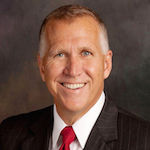
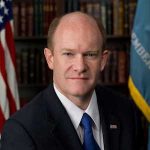
![[[Advertisement]]](https://ipwatchdog.com/wp-content/uploads/2023/01/2021-Patent-Practice-on-Demand-1.png)
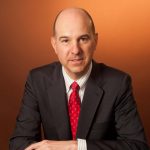
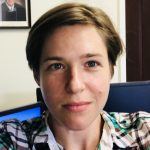
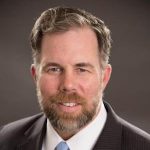
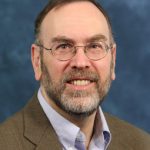
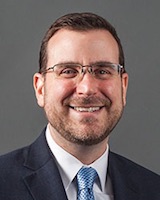

![[Advertisement]](https://ipwatchdog.com/wp-content/uploads/2024/04/Patent-Litigation-Masters-2024-sidebar-early-bird-ends-Apr-21-last-chance-700x500-1.jpg)

![[Advertisement]](https://ipwatchdog.com/wp-content/uploads/2021/12/WEBINAR-336-x-280-px.png)
![[Advertisement]](https://ipwatchdog.com/wp-content/uploads/2021/12/2021-Patent-Practice-on-Demand-recorded-Feb-2021-336-x-280.jpg)
![[Advertisement]](https://ipwatchdog.com/wp-content/uploads/2021/12/Ad-4-The-Invent-Patent-System™.png)







Join the Discussion
15 comments so far.
Model 101
June 26, 2019 12:30 pmSo I went to the hearings in DC. I reviewed the documents and videos. I was invited to dinner by USI after hearing 2.
The best comment came from someone at the dinner. His comment was unsolicited, he said: “They’re all crooks!” (I took it to mean the Senators and Congress).
101 reform bills are nothing more than lip service. Apple, Microsoft, Amazon, Google will surely make sure that generic computer products are ineligible under the new 101 reform bill. Let’s face it…. to the crooks, Silicon Valley money talks! Say goodbye to computer and software patents. AI, databases, QC, encryption, etc….Silicon Valley will make the money on those…not small inventors!
C’mon…reform? What a joke!
Bill
June 17, 2019 03:38 pmPeter
What I have learned from life is that we have highly intelligent people with no common sense or values. Many do not understand that innovators as myself have the ability to come up with solutions that will save this country billions, create thousands of jobs and save thousands of lives.
When you have a chance send me your email contact at [email protected], so that you can review the summary of my project and the solution which was put together by 6 professionals, each in their specific field related to the medical industry. I can use your feedback on how to get this project off the ground.
Anon
June 14, 2019 08:12 amPeter @ 12,
Perhaps you do not understand the nature of playing the Devil’s Advocate and asking questions that prompt a better understanding of the situation.
To the effect then that you want me to “get a clue,” I suggest that you first follow your own advice.
NO ONE is suggesting that anyone “self fund everything” — where did you find such a strawman?
Why do you think that balancing any type of funding/keeping things running trade-off has anything to do with my questions?
Peter
June 11, 2019 08:51 pmHey Anon,
Get a clue. So Bill is supposed to self fund everything? Drop everything in his life to advance this, knowing it will be his own sacrificing, when in fact the system should be working to his benefit? AKA, not his fault. And, how does he pay for all or any employees? Plant a money tree? Maybe you should reach into your pockets with all your care and concern and devil’s questions and fund all of it? Sound good? Bill, where can “Anon” send the check to?
Fred
June 6, 2019 10:45 amThis game has been played for years and people know special interest groups will get their way. Pharma will carve out their section Google, Apple and companies Amazon will continue to fleece patent holders and drain them in the courts with out paying for iding their patents. America has caved in, to the corporations and have killed off future investors from uiling and grow a business in America. Its game over the game is done
Ben Wallace
June 6, 2019 10:24 amThis is a great example how government makes it look like they are going to do something for patent holders. Bottom line is Silicon Valley is not breaking a sweat as they maxed out their donations to the Democrats and Republicans in the house and the Senate. All we are seeing here with Sen Tolis and Sen Coons is classic political theater. At the end nothing will change and new inventors will be exiting the American market place as there are no ip rights for patent holders.Gernany and China are the new places to break ground.
Anon
June 6, 2019 08:23 amMr. Diaz,
Continuing in my role as Devil’s Advocate, your reply does not answer my question.
I did not ask what your actual motivation was.
I asked a different question. And I asked that different question on purpose.
Will you attempt to answer the question that I actually asked?
Bill Diaz
June 5, 2019 10:54 pmAnon,
My decision was not based on an unethical choice, but a realistic understanding that for my system to work it must be based on the same encrypted software and standards nationwide or it reverts to what we now have in the medical industry, which is a mess. Miscommunication affects healthcare delivery and CRICO has estimated that medical errors has cost the healthcare system $1.7 billion.
mike
June 5, 2019 07:29 pm“Alex Moss of the Electronic Frontier Foundation … said her organization routinely heard from small business owners who cannot afford patent attorneys and who have benefited from Alice because district courts have been able to invalidate patent claims and dismiss cases before the discovery and expert witness fees required for analysis under other sections of U.S. patent code.”
And what of the numerous small business owners who cannot afford patent attorneys when their patents are challenged at the PTAB? Where is the support from the EFF for THOSE small business owners??? Oh wait, there is none. The EFF is a Silicon Valley outfit and wants a weak patent system.
“Senator Coons asked Moss what suggestions she would make to fix Section 101 while balancing the desire to prevent abusive litigation.”
Watch the video recording of the hearing and pay attention, because Moss didn’t provide any suggestions in her response to his question. She doesn’t want to fix Section 101, nevermind SCOTUS’s decades of unconstitutional writing of law from the bench.
jack
June 5, 2019 03:21 pm97% of PTAB invalidation rate? As inventor I have only one answer. I already started contacting my former business partners living currently in EU. and started application for EU passport I am lucky enough to be eligible for. In EU There are bunch of programs financing new startups starting from program financing legal paperwork applying and prosecution and defense of patents. There are programs financing new startups based on as only asset pending patent application. There is for example German utility patent where examination can be delayed for up to 7 years giving you enough time to test the product before you spend money on legal paperwork.
There is no BS about leading in the world US patent law and NO leading in the world Snake Oil salespeople posing as judges or politicians.
Anon
June 5, 2019 12:30 pmThe comparison of Mossoff and Sarnoff read to me as expected: Mossoff provides a voice of reason backed by facts and Sarnoff is deep in the weeds with wild stories of conjecture and doom.
I would add that If Mr. Sarnoff really wants to advance his Constitutional Law argument, that he re-acquaint himself with that topic as his rant (reflected here) is not even close to being accurate or meaningful under the law. His view is utter nonsense.
Anon
June 5, 2019 12:02 pmBill,
I hear you, but let me play the Devil’s Advocate for a moment.
Some would say that your choice NOT to implement a life-saving system merely for financial concerns of a “I am a small investor and will be ripped off by larger companies” is an unethical choice – basically stating that you have an ethical duty to advance life-saving innovation regardless of the financial angle.
How would you respond to such a charge?
(please keep in mind that this is NOT a position that I espouse).
Bill Diaz
June 5, 2019 11:08 amAs an inventor / innovator I have reached the point where filing for a patent is a waste of money and time. Alice 101 has caused me thousands of dollars, but worst it has prevented me from implementing a system which would minimize the third cause of death in the U.S. due to medical error and lack of information. That accounts for over 250,000 death a year. After 3 years of research and development we are now ready to launch, but without a patent the small inventor has little chance against large companies.
Anon
June 5, 2019 08:26 amI have to wonder if any of the guests will be nuanced enough to lay out an argument — not for the immediate audience of Congress, but rather for an altogether different audience of the Supreme Court.
That argument would be to lay out the foundation of the Kavanaugh Scissors, first expounding upon the holding of the Schein case, then expounding on the factors of the California Franchise Tax Board v Hyatt case.
One could THEN tie these foundations back to the Dickinson thrust (preceding IPWatchdog story), noting that the Court has not used a mechanism fully available to it.
I could only dream of the possible slam afterwards if not only is the Court adverse to correcting its own mistakes, but the the Court seems intent on keeping its fingers in the Nose of Wax of 101 – and will likely continue to do so, and advance the concept of Congress employing its Constitutional power of stripping jurisdiction from the Supreme Court of the non-original jurisdiction of latent appeals and providing a new (untainted) Article III Court (to maintain Marbury).
Joe
June 4, 2019 10:32 pmGreat summary, thank you for the article!